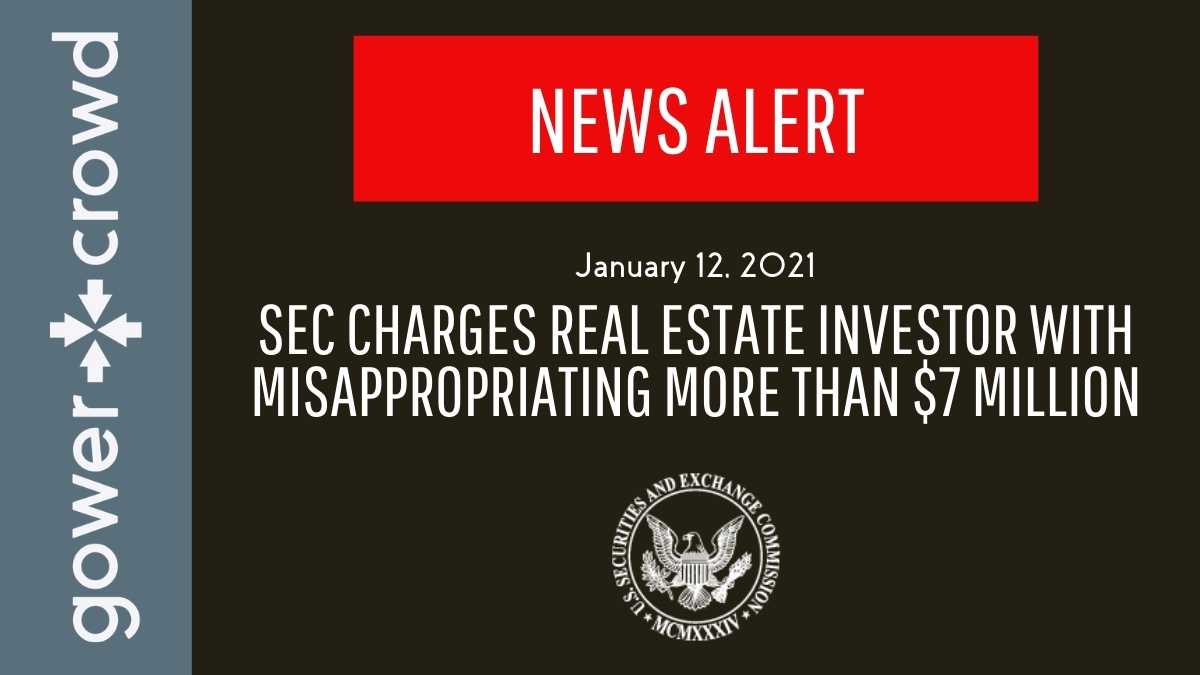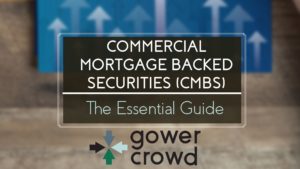FREE TRAINING
What is Real Estate Crowdfunding?
Learn how to build wealth and earn passive income in real estate while someone else does all the work.
News Alert: SEC Charges Real Estate Investor With Misappropriating More Than $7 Million

On January 12, 2021, the Security and Exchange Commission (SEC) charged Eric C. Malley, manager of MG Capital Management, with misappropriating more than $7 million and for defrauding investors in multiple funds being managed by the company. The charges, beginning in 2014, accuse Malley of wrongfully fabricating his investment experience and being deliberately deceptive.
According to Richard R. Best, the Director of the SEC’s New York Office, “As alleged in the complaint, Malley and MG Capital defrauded investors who thought they were entrusting their money to a fund manager with a long and successful track record.” Best would go on to state, “This case demonstrates our commitment to hold accountable perpetrators of offering frauds for the harm they inflict on retail investors.”
The charges serve as a firm reminder just how important it is for real estate sponsors to honestly market themselves to potential investors. Quantitative claims being made to investors, such as how long a person has worked in the industry or the types of projects they have completed in the past, need to be verifiably true. Misrepresenting an individual’s potential exposure to risk is also taken very seriously. Marketing is an active form of direct communication that, when done maliciously, can result in damaging legal consequences.
The SEC alleges that among the many egregious claims being made by Malley and his team, claimed investor’s capital would be “100 percent protected from loss,” something that appears to be patently false. The company also created a “non-existent $250 million balance sheet” that misrepresented the firm’s ability to secure capital.
Additionally, Malley falsely claimed the firm had hundreds of prospective tenants for a proposed project, claiming that pre-signed, multi-year lease agreements had already been secured. This gross misrepresentation lured interested investors, putting their capital at risk. The final charge, laid forth by the SEC, was that Malley had “misappropriated more than $7 million in investor assets while using falsified financial reports to conceal huge losses that ultimately forced the two funds into wind-down.”
Officially, the complaint was filed in the Southern District of New York, one of the busiest and most high-profile legal jurisdictions in the country. Malley is accused of violating both the Securities Act of 1933 and the Securities Exchange Act of 1934, two broad pieces of post-Depression legislation that were designed to increase transparency and honesty within the securities community.
If convicted, Malley will likely be heavily fined and may also face potential time in prison. In addition to assistance from the US Attorney’s Office for the Southern District of New York, the case will also be aided by the Federal Bureau of Investigation (FBI).
Since the 2008 housing crisis—which was at least partially caused by misrepresentations of mortgage-backed securities—the SEC has paid particular attention to the way real estate firms of all kinds represent themselves to possible investors. This has been particularly true for crowdfunding firms who, thanks to the passage of the JOBS Act, now have the ability to market to less experienced or sophisticated investors.
***
While there are no guarantees that you will not be sued by the SEC or individual investors, there are some fundamental rules to observe when raising capital online. Here are the top 4 of those:
- Nothing in real estate is guaranteed. Never guaranteed anything. Ever.
- Do not exaggerate your track record. If you have zero history in real estate and your partners have 20 years track record – you have zero history. Period.
- Produce only authentic content that reflects your perspective, your history, and your unique story. Let it stand on its own merits, be open about your weaknesses and how you compensate for them.
- Be transparent and truthful even if the news is not great. Your investors expect and deserve that you always remain honest and forthright.
Here at GowerCrowd we are very selective in who we take on as clients and always look for integrity and transparency. Sponsors who are honest about who they are, their failures and their weaknesses and who don't attempt to create a persona online that reflects someone they think investors want to see rather than their true self, will be more successful in the long run, and less likely to run into trouble along the way.
If you liked this article and would like to learn more about raising capital online, check out some of the resources below:
If you have only just started in real estate development, have completed no deals, have no email list, but know you want the freedom and wealth being a real estate developer brings, then I suggest your first step is to start evaluating deals so you can recognize a good one when you see it.
Here’s where you should start. You’ll learn everything you need to know – the different types of real estate, different development strategies, how real estate cycles influence the market, and all about due diligence.
If you want to find deals and raise money for them so you can start your real estate development business, then learning how to conduct due diligence so you can pitch your deals better to investors is a great place to start.
If you’ve already purchased one or more real estate project and are seeing more opportunities than you can finance, then now is the time to start building your investor network so you can finance all your next deals quicker.
You’ve already got some momentum; now start finding and educating prospects about what you’re doing so you can build an email list of people to pitch to when you’re ready to raise money for your next deal.
This is what we build for private clients all the time – it’s called the Investor Acquisition System and you can access the entire program right here so you can find prospects, and convert them into being deep pocketed, repeat investors in your deals.
If you are a seasoned pro with multi-cycle experience, a substantial portfolio, a decent deal pipeline, and find yourself spending too much time raising equity capital because you’re still doing it in-person, then it’s time you put technology to work for you.
The wonderful thing about doing this is that you’re not going to be doing anything different than you’re already doing and, guess what, you’ll never have to sit through investor meetings again.
Sounds crazy I know, but I lay the whole thing out for you in this white board workshop where I personally show you exactly what it takes for you to transform your equity raising into a fully automated, capital raising machine so you can find new investors while increasing commitments from your existing network.
RELATED ARTICLES




